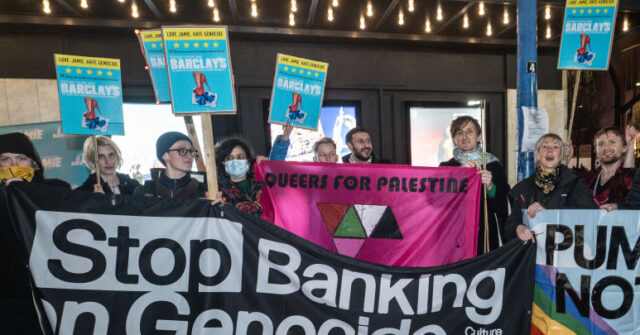The process of debanking defense companies that supply Western militaries has reached a critical point, prompting high-profile figures like NATO Secretary-General Mark Rutte to publicly advocate for continued investments in the defense sector. Rutte stressed that it is inappropriate to categorize defense firms in the same moral or economic brackets as illegal drugs or pornography, acknowledging that left-leaning campaigns aimed at debanking arms companies have begun to take noticeable effect. In a speech delivered in Brussels, he articulated the essential nature of increased defense funding, positing that investing substantially in military capabilities serves as a preventive measure that could help avert much larger expenditures in future conflicts. Rutte pointed to Ukraine’s disproportionate defense spending relative to its European counterparts as a sobering reminder that freedom entails significant costs.
Highlighting the shared responsibility borne by government officials and the public, Rutte insisted that bureaucratic barriers between industries, banks, and pension funds must be dismantled, asserting that such obstacles only inflate costs, hinder innovation, and exacerbate security challenges. His remarks were directed not only at financial institutions but also at citizens of NATO nations, urging them to communicate their disapproval of banks refusing to fund the defense industry. He posited that the essential role of defense in national security should not be tainted with the stigma associated with illegal industries, as defense plays a critical role in guaranteeing safety.
The campaign against defense companies has intensified over recent years. Activists have exerted pressure on banks to deny financial support based on moral grounds, often targeting specific military technologies or arms sales to countries like Israel that left-wing groups oppose. This activist movement has escalated from routine letter-writing campaigns to more direct actions, including vandalism of manufacturing sites and physical confrontations. In the broader financial landscape, even mainstream media outlets have reported disparagingly on banks that maintain ties to defense firms, echoing the language of activist groups that seek to diminish their funding in favor of peace-oriented investments, as seen in calls from figures like Martin Rohner of the Global Alliance for Banking on Values.
The influence of Environmental, Social, and Governance (ESG) frameworks also plays a crucial role in shaping financial institutions’ policies toward defense companies. Critics contend that the ESG standards, often aligned with activist ideologies, can jeopardize national security at a time when military preparedness is essential in the face of escalating global threats. Recently, both NATO and various national governments have underscored the need for the financial sector to reconsider its stance on defense spending. Reports from the UK government underscored this pressing concern, where the business secretary’s statements highlighted the detrimental effects of virtue signaling among corporations, which pose barriers to growth and innovation for smaller defense firms.
Despite a range of voices emphasizing the importance of supporting the defense industry, the concerns about banking institutions denying access to essential financial services are widespread. Reports reveal that major UK banks have rejected or closed accounts for defense-related companies on numerous occasions, diminishing their operational capacities. Prominent figures within the British government have criticized this reluctance, highlighting a disconnect where banks that thrive under a secure national landscape distance themselves from the industries ensuring that very security. Figures like Tobias Ellwood and Dame Harriett Baldwin have vocally condemned the actions of financial institutions, questioning the logic and ethics of debanking legal defense companies that play a vital role in maintaining national security.
In 2023, the discourse surrounding the implications of ESG policies escalated further, with former Defense Minister Grant Shapps labeling these standards as a potential threat to the UK’s defense industry. Shapps underlined the critical role of a robust defense sector in sustaining the economy and ensuring societal safety, warning that neglecting this sector would compromise the security framework that enables the financial industry to flourish. Moreover, Shapps pointed out the lack of appreciation for the defense industry as an essential component of the nation’s ability to preserve peace and security, calling for a balanced approach that values both economic sustainability and defense capabilities.
Western defense firms’ challenges reflect a broader insecurity among NATO leaders, who remain cognizant of the changing geopolitical landscape. The complacency stemming from the post-Cold War period, which favored social expenditures, has left Western nations vulnerable and unprepared for rapid adversarial advancements. Calls from military leaders within NATO, including Admiral Rob Bauer, have urged businesses and society to prepare for potential wartime scenarios. He articulated a perspective that emphasizes the interconnectedness of military capabilities and economic strength, illustrating that while military forces may win battles, it is ultimately the economy that secures victory in wars. The dire need for a proactive stance, including a commitment to bolstering the defense sector, has been underscored as a national imperative amid the growing complexities of modern warfare.

